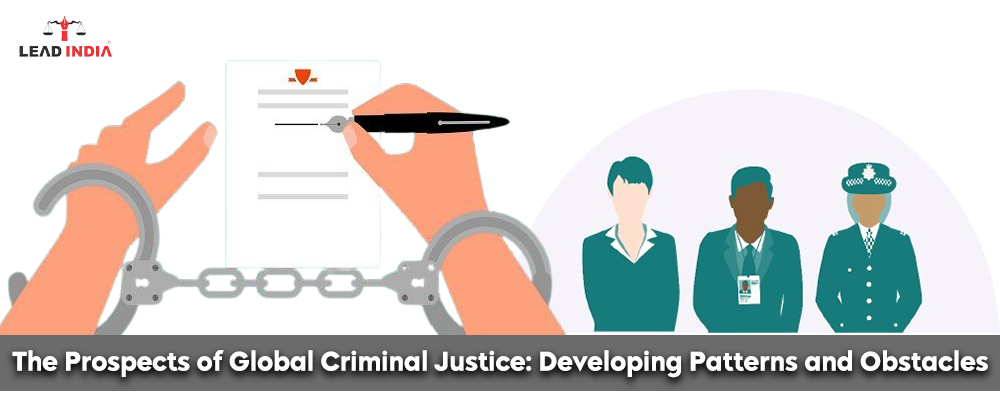Significant milestones in the evolution of international criminal justice have occurred throughout history. International criminal justice has changed throughout time, from the Nuremberg and Tokyo trials after World War II to the founding of the International Criminal Tribunal for the Former Yugoslavia (ICTY) and the International Criminal Tribunal for the Republic of Rwanda (ICTR). These tribunals laid the groundwork for the establishment of the International Criminal Court (ICC) in 2002, a permanent organization dedicated to prosecuting those accountable for the most heinous crimes. The evolution of international criminal justice reflects a rising awareness of the importance of global systems to confront mass atrocities and secure accountability.
Need A Legal Advice
The internet is not a lawyer and neither are you. Talk to a real lawyer about your legal issue

The International Criminal Court (ICC)
The International Criminal Court (ICC) is the first permanent international tribunal established to investigate and prosecute individuals accused of genocide, crimes against humanity, war crimes, and aggression. The Rome Statute established the International Criminal Court (ICC), which functions on the principles of complementarity and jurisdiction over both states and non-state parties when crimes occur within its jurisdiction. The ICC’s structure includes the Office of the Prosecutor, the Pre-Trial Chamber, the Trial Chamber, and the Appeals Chamber. Its mandate is to prevent future crimes, offer justice for victims, and contribute to the advancement of international criminal law.
Emerging Challenges in International Criminal Justice
Today’s global landscape presents a slew of new issues for international criminal justice. Transnational crimes, such as human trafficking, drug trafficking, and organized crime, raise difficult jurisdictional issues that necessitate greater international collaboration. The increase in cybercrime presents particular obstacles to detecting and prosecuting digital crimes. The threat of terrorism, and its ever-changing nature, necessitates novel techniques to deal with the intricate web of people involved. Furthermore, combatting illicit financial flows, such as money laundering and corruption, necessitates collaborative efforts to destroy networks and establish accountability in both domestic and international contexts.
Emerging Trends in International Criminal Justice
In the past few years, new tendencies in international criminal justice have emerged. Hybrid tribunals, such as the Special Court for Sierra Leone and the Extraordinary Chambers in Cambodian Courts, combine international and domestic aspects to enable more context-specific procedures. Advanced technologies, such as digital forensics, data analysis, and artificial intelligence, are increasingly being used to investigate complicated crimes and analyze massive amounts of evidence. Alternative methods, such as community-based justice programs and restorative justice practices, are gaining popularity as a means of supplementing traditional punitive tactics and encouraging reconciliation.
Critiques and prospects
While international criminal justice processes have advanced significantly, they are nonetheless subject to criticism and limits. Some believe that they disproportionately focus on African cases, creating allegations of bias. The difficulties of state cooperation, limited resources, and the protracted duration of procedures have all been criticized. To address these concerns and improve global accountability, potential reforms include increasing geographical representation in international tribunals, improving efficiency and cost-effectiveness, promoting universal ratification of the Rome Statute, and fostering stronger partnerships between international and domestic jurisdictions. The future of international criminal justice demands a determined effort to adapt to evolving issues, embrace creative ways, and create a more inclusive and effective global justice system.
Emerging trends and complicated issues shape the future of global criminal justice. This field’s growth, from historical milestones to the founding of the International Criminal Court, demonstrates a global commitment to responsibility and justice. However, current concerns such as transnational crime, cybercrime, and terrorism necessitate novel responses and more international cooperation. Strengthening complementarity, fostering transitional justice, battling impunity, and prioritizing witness protection and victim participation is critical. International collaboration, innovative technologies, and alternative mechanisms offer hope for the future. International criminal justice can contribute to a more effective and just system by addressing criticisms, fostering improvements, promoting inclusivity, assuring accountability, and safeguarding human rights on a worldwide scale.
As we traverse the complexity of the modern world, we must remain watchful and adaptable to the changing nature of international crime. The challenges that lie ahead should not deter our dedication to justice but rather inspire us to work harder and try new approaches.
Lead India offers free legal advice and online information, in addition to other legal services. We provide a forum to talk with a lawyer and ask legal questions. Lead India’s solicitors can help you with any legal difficulties. Lead India’s solicitors may assist you with any legal issues. Lead India also offers free online legal help in India. In addition to giving online legal assistance, Lead India allows users to ask specialist questions for free.




 Talk to a Lawyer
Talk to a Lawyer